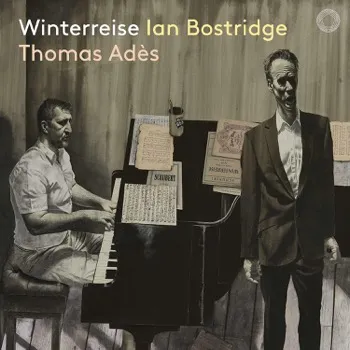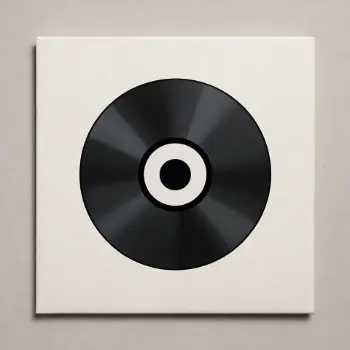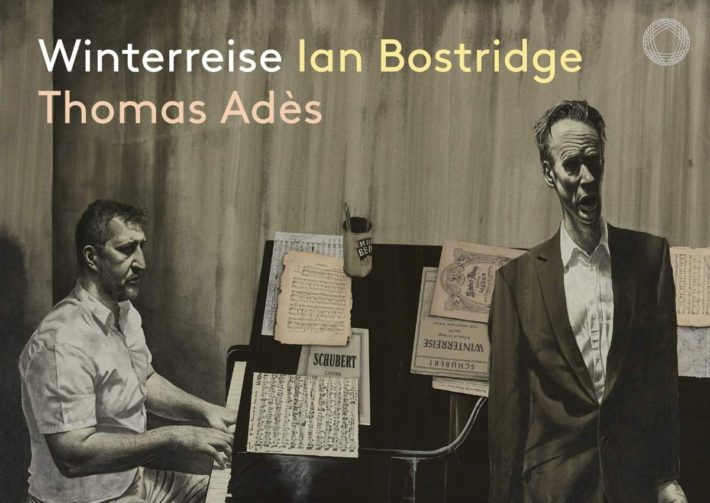Schubert’s “Winterreise” has been an obsession of sorts for Ian Bostridge, in what is now his third recorded performance. He previously recorded the work in 1994 for a video production with Julius Drake, a 2004 session followed with Leif Ove Andsnes and now we have this 2018 live recording from London’s Wigmore Hall, with Composer, conductor and pianist Thomas Adès at the piano. There is a sense that Bostridge is seeking to go to the heart of Müller’s poems through his re-evaluations, performances and writings over the years. Each time he finds some more profound nuances in this intensely moving, haunting and heartbreaking song cycle.

In the opening songs, every vocal sound is deliberate, captured with such clarity it’s initially slightly distracting. As the song cycle progresses, this becomes less obvious. The venue gives a sense of occasion and the engineers have produced an exemplary live recording with negligible sound from the audience, making this a refined experience.
Preparing a new performing edition, Adès has returned to the original manuscripts, dispensing with some long-held traditions and expectations. With the two performers so motivated to find the authentic meaning in this work, it culminates in the most extraordinary vision of what Bostridge hails as “the greatest of all song cycles”.
In going back to Bostridge previous thoughts of the cycle, the 1994 staged incarnation has a Brittenesque quality to the production. It has a charm all of its own, bringing a sense of drama to the poems. Sadly. It’s not available as a stand-alone audio release (but available on YouTube). When comparing the latest version to both the 1994 and 2004 recordings, the new performance shows a striking maturity in Bostridge’s voice. Richer, darker, with more of a baritone quality on the lower notes noticeable, especially in “Gute Nacht” (track 1), “Gefror’ne Tränen” (3) and “Wasserflut” (6). Gone is the sense of certainty and rhythmic precision of his early recordings, replaced with an uneasy ambiguity, prevailing from the first song to the last.
“Wasserflut” has a freedom from the score, with a greater range of expression. The vibrato is used more economically, lessening the beauty of sound but intensifying the meaning of the words, and Bostridge’s overall control is now greater. Hear how in “Rast” (track 10), Schubert instructions of “quietly”, “stark” and “loud” are used to intensify the meaning of the sang text, more so than anywhere else in the cycle. Bostridge implements these directions with significantly more understanding and emotional involvement now, a vision shared also by Adès.
Tempos remained generally similar to the 2004 Andsnes version, though not without exception. “Einsamkeit” (12) is quickened and the phrasing has changed significantly, creating an unsettling feeling. “Die Krähe”, on the other hand (15), is given a much broader tempo, not only compared to the Andsnes version but to most singers, elongating the lines and taking over 1.5 minutes longer than before. Here Bostridge employs an almost “sprechstimme” approach, which creates an ethereally haunting rendition with a measure of intensity. “Der Wegweiser” and “Das Wirtshaus” (20, 21) are also broader, with a foretelling vision of the end. On reaching the final song, “Der Leiermann” (taking almost 30 seconds longer than in 2004), the desolation and solemnity are magnified. Adès adds some interesting details with prolonged dissonances and articulate playing, making this intriguing rendition stand out. By the end of this immense journey, one is completely immersed in this spiritual exploration of the wanderer’s soul.
As comparisons go, one can mention just three of many classical performances, all recommended; Dietrich Fischer-Dieskau with Gerald Moore, Peter Pears and Benjamin Britten or Matthias Goerne accompanied by Alfred Brendel (also live from Wigmore Hall). Coincidentally, Bostridge being the same age here as Pears was when he recorded his famous version. Throughout the Andsnes recording, there is a “classical” vision of the cycle, in which the music serves the poems and the performers observe the score to the letter. In the new version, the words serve the music with a “romantic” perspective on Schubert’s songs, and the two performers utilize less predictable phrasing, resulting in a more empathetic reading.
The 2004 Andsnes version has a tighter rhythmic precision and pristine intonation. However, if you only have space for one Bostridge-Winterreise, this latest recording is preferable for its raw emotional insights. The booklet includes an enlightening foreword by Bostridge himself, a previously published essay that nonetheless gives an insightful context to his long journey with Winterreise.
Schubert – Winterreise
Ian Bostridge – Tenor
Thomas Adès – Piano
Pentatone, CD PTC 5186764




















